Dr. Kildare's Victory

Brief Synopsis
Cast & Crew
Major W. S. Van Dyke Ii
Lew Ayres
Lionel Barrymore
Ann Ayars
Robert Sterling
Jean Rogers
Film Details
Technical Specs

Synopsis
On a busy night at Blair General Hospital in New York City, head nurse Molly Byrd returns from a three-week vacation and asks her staff about resident Dr. James Kildare, whose fiancée, nurse Mary Lamont, was killed the day before their wedding. Byrd is told that Kildare has been carrying on only because of his love of medicine. Head surgeon Dr. Leonard Gillespie, Kildare's wheelchair-bound mentor, is also concerned and orders him to take a night off, but instead Kildare accompanies his friend, intern Donald Winthrop, on an emergency ambulance call. During the ride, Kildare advises Donald to propose to his girl friend, nurse Annabelle Kirke, telling him that he himself was wrong to wait. After Kildare revives a suffocating infant on the emergency call, he sends Donald back to Blair. On the way, Donald, who, like Kildare is concerned over a territorial division with nearby Emerson hospital that can cause delays in emergency service, notices an accident and stops, even though it is not Blair's territory. He finds well-known society girl Cynthia "Cookie" Charles lying on the street, gravely injured by broken glass. Over the ambulance driver's objections, Donald takes Cookie to Blair, then, with Annabelle's compliance, omits the pickup address on the admittance card. Kildare performs a delicate operation to remove glass which has pierced Cookie's heart, and is successful. Shortly thereafter, Donald and Annabelle tell him that they are engaged, but are worried that Donald might be fired because of his deception on Cookie's admittance card. They soon hear from Blair administrator Walter Carew that the hospital's board is furious over a protest from Emerson. Gillespie and Kildare plead Donald's case, but the board insists that Donald be fired. Kildare then goes to Cookie and asks her to save Donald by using her influence with the board. Meanwhile, Kildare cures little Helen Johnson, the daughter of a newspaperman, of diptheria. Feeling that he has no chance of remaining at Blair, Donald decides to go into private practice, but has no money. He is at first reluctant to let Annabelle help him by continuing to work after their marriage, but Kildare and Gillespie convince him that he is being silly. That same night, a cab driver rushes to the Blair receiving desk with a gravely ill passenger, but Annabelle refuses to admit him because the fare was picked up in Emerson territory. Not wanting to wait for an ambulance, the cabbie drives the man himself. Meanwhile, Kildare learns from Cookie that despite her best efforts, she has been unable to change the board's decision about Donald. Cookie, who is very attracted to Kildare, says that she lives on only a $90 weekly inheritance that is about to run out and is trying to find a "guy to protect me." Kildare is also attracted to Cookie, but his feelings for Mary prevent him from responding to her. A short time later, Kildare learns from Annabelle that she has been fired for refusing to admit the taxi passenger, who was dead on arrival at Emerson. Determined to help her and Donald, Kildare asks Johnson to write a feature article about their situation and the problem of territorial disputes between the two hospitals. The next day, Kildare is disappointed that the article does not appear in Johnson's paper. He is summoned to appear before Blair board member Baxter, who explains that he had learned about the article before it was printed and arranged for it to be killed. Baxter refuses to rescind either firing and temporarily suspends Kildare for his actions. Now Gillespie determines to help and goes to Cookie for assistance in getting the story out. The next morning, she calls Kildare to her room and shows him a front page story in another paper that relates the incident and adds that a new dispatch system has been set up between Blair and Emerson and Annabelle and Donald have been reinstated. Cookie then is released from the hospital, but tells Kildare that she will be back next week so he can see her scar.

Director
Major W. S. Van Dyke Ii
Cast

Lew Ayres
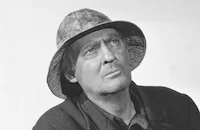
Lionel Barrymore
Ann Ayars

Robert Sterling

Jean Rogers
Alma Kruger

Walter Kingsford
Nell Craig
Edward Gargan
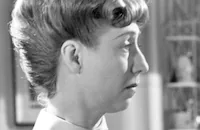
Marie Blake
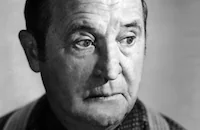
Frank Orth
George H. Reed

Barry Nelson
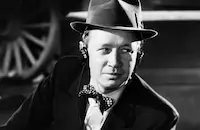
Eddie Acuff
Gus Schilling
Stuart Crawford
William Bakewell
Charlotte Wynters
Anne O'neal

Louis Jean Heydt
Frank Faylen
Selmer Jackson
William Tannen
Paul Kruger
Bill Lally
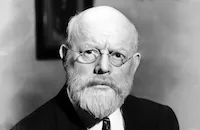
Howard Mitchell
William H. O'brien
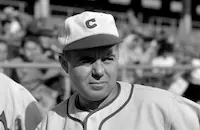
Ray Walker
Pat Gleason
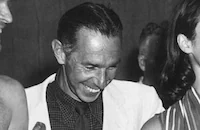
Jack Arnold
Mary Field
Billy Wayne
George Noisom
Barbara Bedford
Sylvia Field
Janet Chapman
Marjorie Whately
Dick Baron
Tom Stevenson

Grace Stafford
Charles Trowbridge
Gayne Whitman
Alexander Campbell

Bryant Washburn Sr.
Becky Bohanon
Kirby Grant
Crew
Tom Andre
Cedric Gibbons
Willis Goldbeck
Joseph Harrington
Lennie Hayton
Frank E. Hull
Kalloch
Dr. Charles Mandell
Arthur Rose
Wade B. Rubottom
Harry Ruskin
Douglas Shearer
Burt Sperlin
Edwin B. Willis

Film Details
Technical Specs

Articles
Dr. Kildare's Victory -
By Violet LeVoit

Dr. Kildare's Victory -
Quotes
Trivia
Selmer Jackson is in studio records playing "Mr. Baxter", but he was replaced by Charles Trowbridge. Also in studio records as "Mason" was Vinton Haworth, but he was not seen in the print. The Hollywood Reporter listed Samuel S. Hinds and Emma Dunn in their usual role as Dr. Kildare's parents, but they were not in the film either. These omissions may have resulted from final cuts, since the preview time listed in Daily Variety was 100 minutes.
When Lew Ayres announced he was a conscientious objector to the war shortly after the film was released, hundreds of bookings were cancelled because of protests. Loew's ordered that all cancellation requests be granted. When Ayres changed his status (in April 1942) to "non-combatant", many in the film industry stated that a boycott of his films would be inconsistant with Americanism and intolerant.
Notes
A working title of the film was The Inside Story. The Daily Variety review listed a preview running time of 100 minutes. Although Samuel S. Hinds and Emma Dunn, who portrayed the parents of "Dr. Kildare" in the series, were listed in Hollywood Reporter production charts, they were not in the released film. Ann Ayars, who portrayed "Cookie Charles," made her motion picture debut in the film. Dr. Kildare's Victory was the last of the "Dr. Kildare" films to be released and the last of the series to be completed by Lew Ayres. Shortly after the film was released, Ayres declared himself a conscientious objector to war and, as a result, was confined to an internment camp. News items in Hollywood Reporter relate that "hundreds of bookings" of the picture were canceled and, because of protests, Loew's had ordered all of their film exchanges to grant cancellation requests. In early April 1941, Hollywood Reporter news items relate that the "panic" had lessened, but that M-G-M was still concerned over the film's public reception. By mid-April 1941, Ayres had requested a change of status from conscientious objector to "non-combatant," and some newspapers, exhibitors and film industry personnel had expressed the view that a boycott of Ayres's films was "inconsistent with Americanism" and intolerant.
Although Ayres's next released film, Fingers at the Window, apparently opened without problems, and Ayres joined the Army Medical Corps, the next film in the Dr. Kildare series was partially re-shot without Ayres. That film, which was released as Calling Dr. Gillespie, was initially shot with Ann Ayars reviving her role as Kildare's new "love interest," but her role was eliminated from the released film, along with Ayres's. For additional information on Ayres's career during this period, see the entries above and below for Calling Dr. Gillespie and Fingers at the Window. For additional information on the Dr. Kildare series, see the entry for Young Dr. Kildare in AFI Catalog of Feature Films, 1931-40; F3.5251 and consult the Series Index.















